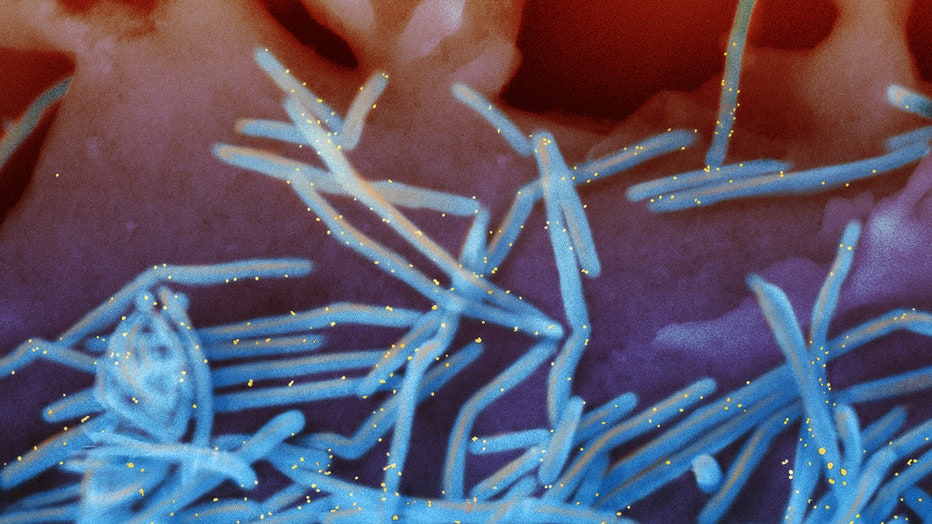CDC issues health advisory of increased RSV across southern US
CDC director urges teens to get COVID-19 vaccine, citing high hospitalizations
CDC Director Rochelle Walensky urged teens and adolescents to get vaccinated against COVID-19, pointing to high hospitalizations among this group in March and April.
WASHINGTON - The U.S. Centers for Disease Control and Prevention issued a health advisory Thursday notifying clinicians and caregivers about increased interseasonal respiratory syncytial virus (RSV) activity across parts of the southern United States.
According to the CDC, RSV is an RNA virus, primarily spread via respiratory droplets when a person coughs or sneezes, and through direct contact with a contaminated surface. RSV can be associated with severe disease in young children and older adults.
While RSV infections occur primarily during the fall and winter cold and flu season, the CDC found an increase since March in RSV detections reported by the National Respiratory and Enteric Virus Surveillance System, a nationwide laboratory-based surveillance network.

Scanning electron micrograph of human respiratory syncytial virus (RSV) virions (colorized blue) and labeled with anti-RSV F protein/gold antibodies (colorized yellow) shedding from the surface of human lung epithelial A549 cells. Credit: NIAID. (Pho
"Due to this increased activity, CDC encourages broader testing for RSV among patients presenting with acute respiratory illness who test negative for SARS-CoV-2, the virus that causes COVID-19," the agency wrote in its advisory. "This health advisory also serves as a reminder to healthcare personnel, childcare providers, and staff of long-term care facilities to avoid reporting to work while acutely ill – even if they test negative for SARS-CoV-2."
The CDC noted increases in laboratory detections and in the percentages of positive detections for both antigen and PCR testing in parts of the south including Alabama, Florida, Georgia, Kentucky, Mississippi, North Carolina, South Carolina, Tennessee, Arkansas, Louisiana, New Mexico, Oklahoma and Texas.
RELATED: California, New York coronavirus variants: Researchers tracking spread of new strains
In April 2020, researchers noticed a decrease in RSV activity, likely due to the adoption of public health measures to help reduce the spread of the COVID-19 virus.
"Since this elevated interseasonal activity is a deviation in the typical circulation patterns for RSV, at this time it is not possible to anticipate the likely spread, peak, or duration of activity with any certainty," the CDC wrote.
RSV is the most common cause of bronchiolitis and pneumonia in children under one year of age in the U.S., the CDC said.
Since RSV levels were reduced in 2020, the agency said infants and toddlers may be at an increased risk of severe illness to the virus, since they have not had typical levels of exposure to RSV during the past 15 months.
RELATED: Moderna CEO says company anticipates ‘a lot of variants’ of coronavirus in next year
Symptoms in young infants may include irritability, poor feeding, lethargy or apnea. In older infants, symptoms may include decreased appetite, cough, sneezing, fever and sometimes wheezing.
The CDC said symptoms in adults are typically consistent with upper respiratory tract infections, including rhinorrhea, pharyngitis, cough, headache, fatigue and fever.
Each year in the U.S., RSV leads to an average of approximately 58,000 hospitalizations with 100-500 deaths among children under the age of five years old, and 177,000 hospitalizations with 14,000 deaths among adults aged 65 or older.
There is currently no specific treatment for RSV infection other than symptom management.
This news comes as worrisome new variants of the coronavirus infection continue to be detected across the U.S. and globally — fueling concerns that emerging and possibly more contagious strains could hinder the recent downward trend of cases in the country.
In April, Moderna’s CEO, Stéphane Bancel, said he anticipates the world will see many coronavirus variants in the months ahead as it races to vaccinate the population against COVID-19 and stem the pandemic.
RELATED: Delta variant cases rise in US, world amid COVID-19 vaccination push
"I anticipate in the next year or so, we’re going to see a lot of variants," Bancel said Wednesday during an interview with CNBC’s "Squawk Box." "But as more and more people get vaccinated or naturally infected, the pace of the variant is going to slow down and the virus is going to stabilize like you see with flu."

